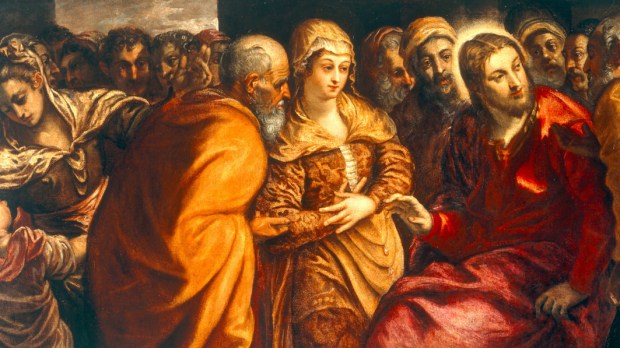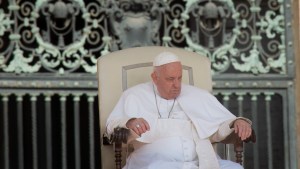Chinese Catholics are pushing back against a new textbook that distorts the actions of Christ in John 8. The reimagined biblical scene — in which Jesus saves the adulterous woman from being stoned to death — has been altered to end with Christ killing the woman himself, while calling himself a “sinner.”
According to UCA, the textbook was published by the government-run University of Electronic Science and Technology Press, with the intention of teaching “professional ethics and law” to high school level students. Along with many contradictions that arose from editing the actions of Christ, some have been left to ponder how an unethical distortion of a biblical narrative could teach “ethics” to anyone.
In the biblical account of John 8, a woman who had been accused of adultery was brought to Christ by the Pharisees, with the hope that Jesus would contradict the Jewish law that called for her death and give them legal ammunition to use against him. In the Gospel narrative, Jesus confronts the crowd and tells them, “Let the one among you who is without sin be the first to throw a stone at her.”
As each man realizes that he is not without sin, the crowd disperses until Christ is left alone with the woman, whom he forgives and instructs to sin no more. For two millennia this story has taught Christians that we are not fit to judge our neighbors, that each of us is worthy of forgiveness for our sins, and that one must not be afraid to stand against injustice in order to protect the vulnerable.
The Chinese Communist Party (CCP), however, thought it needed adjustment. UCA points out the changes:
“When the crowd disappeared, Jesus stoned the sinner to death saying, ‘I too am a sinner. But if the law could only be executed by men without blemish, the law would be dead,’ the textbook said.”
UCA spoke with Mathew Wang, a Christian teacher at a CCP approved vocational school, who confirmed that these are real changes to the Gospel of John, but he noted that the contents of the textbook changes based on the region. Many of the Catholics who spoke with UCA asked for their names to be withheld due to fear of CCP reprisal, but none of them were happy with what they viewed as a distortion of their Catholic beliefs.
One Catholic who would only identify himself as Paul said it was part of a “pattern” of offenses against the Catholic Church, which the CCP commits year after year.
Catholic World Report points to another instance in which churches in the Henan province of China were forced to replace displays of the Ten Commandments with quotes from President Xi Jinping.



